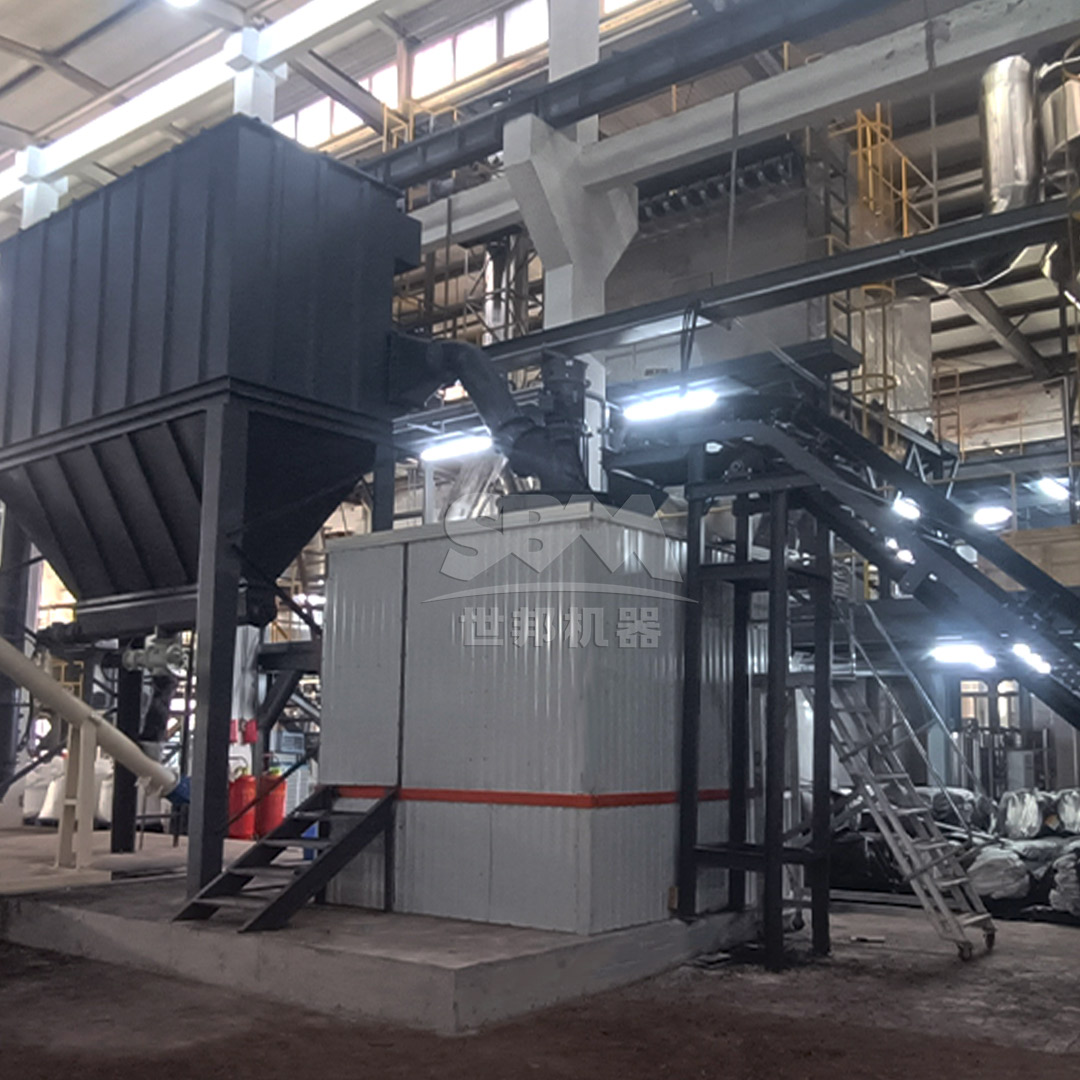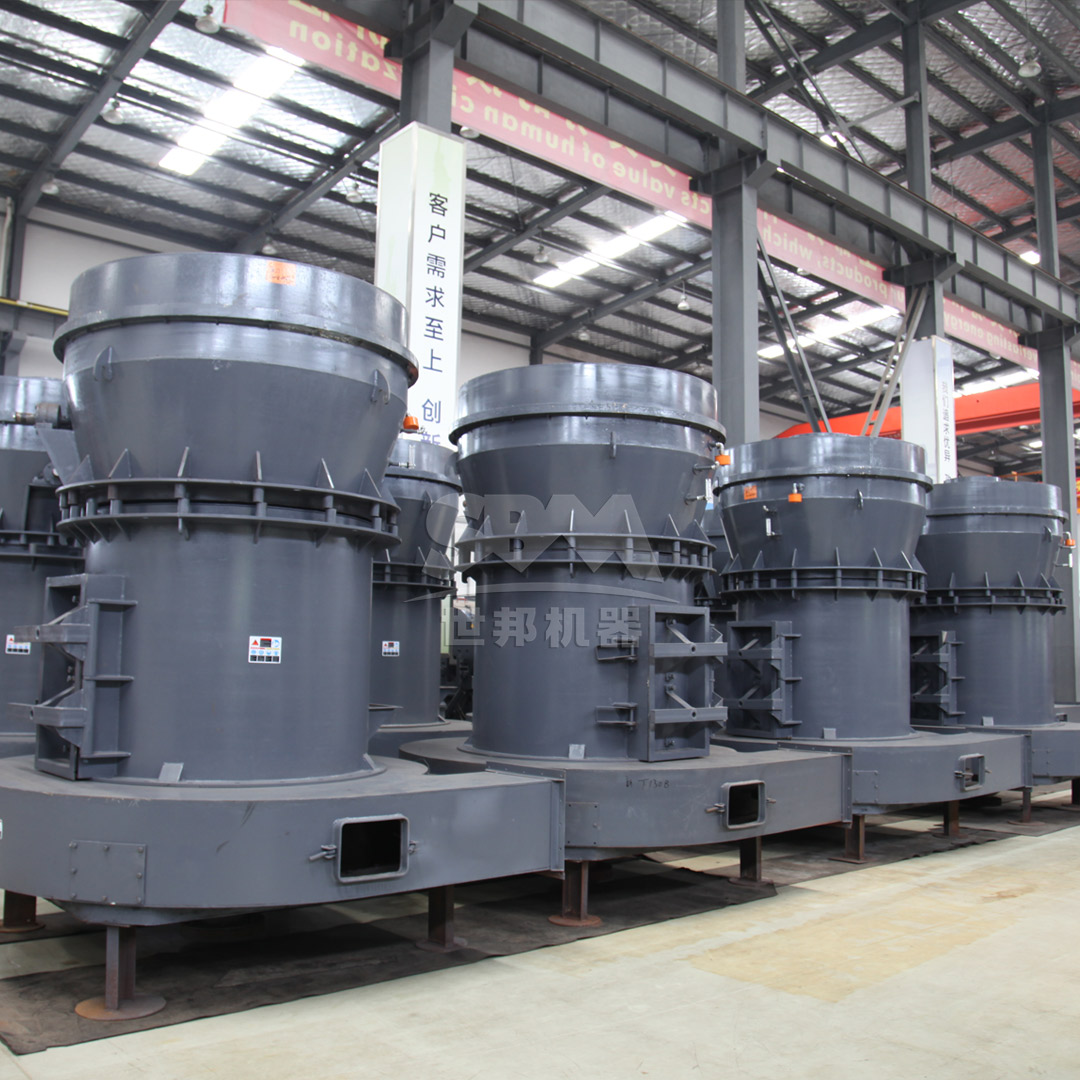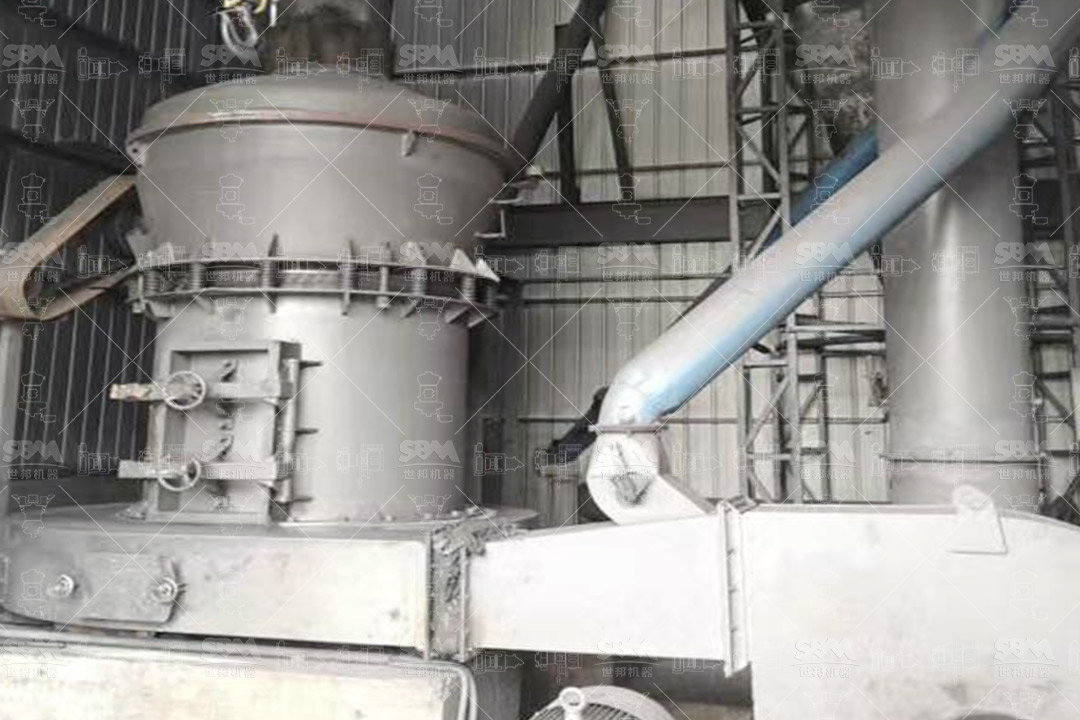Autoclaved Aerated Concrete (AAC) blocks have revolutionized the construction industry with their lightweight, thermal insulation, and eco-friendly properties. A critical component in AAC block manufacturing is gypsum, which acts as a binding agent and regulates the setting time. The efficiency of gypsum grinding directly impacts the quality, consistency, and cost-effectiveness of AAC production. This article explores the importance of advanced grinding technology in optimizing AAC block production, with a focus on gypsum board processing.
Gypsum (CaSO₄·2H₂O) is integral to AAC block formulation. It controls the expansion process during autoclaving, enhances strength, and reduces drying shrinkage. The fineness of gypsum powder affects its reactivity and dispersion within the aluminosilicate matrix. Uniformly ground gypsum ensures consistent block density, structural integrity, and compliance with international standards (e.g., EN 771-4). Inefficient grinding can lead to coarse particles, causing weak spots, increased water absorption, and higher autoclaving energy consumption.
Conventional grinding methods, such as ball mills or hammer crushers, often struggle with gypsum’s moderate hardness (Mohs 2) and tendency to agglomerate. Key issues include:
Advanced grinding technologies address these challenges through precision engineering, automation, and eco-friendly designs.
Modern grinding machines leverage principles of centrifugal force, layered compression, and dynamic classification to achieve optimal gypsum processing. The following technologies are critical for AAC block production:
Turbo classifiers or vertical turbine separators enable precise cut-point control, ensuring that only particles within the target range (e.g., 5–45μm) proceed to collection. This eliminates coarse grit contamination, enhances product uniformity, and reduces recirculation loads. For gypsum, a D97 ≤ 5μm fineness is achievable with advanced systems, improving reactivity in AAC mixes.
Grinding elements (rolls, rings, liners) manufactured from high-chromium alloys or ceramic composites withstand abrasion and corrosion. This extends service life by 2–3 times compared to standard materials, reducing downtime and maintenance costs. For gypsum—which contains crystalline water—sealed bearing systems prevent moisture ingress and ensure stable operation.
PLC-based systems monitor parameters like feed rate, motor load, and output fineness in real time. Automated feedback loops adjust grinding pressure and classifier speed to maintain consistent quality. Remote monitoring capabilities allow operators to optimize production from control rooms, minimizing human error.
Pulse-jet dust collectors with >99.9% efficiency capture fine particles, ensuring emissions comply with ISO 8573-1. Soundproof enclosures and vibration-damping mechanisms keep noise levels below 75 dB, creating safer workplace environments.
| Technology Feature | Benefit for Gypsum Grinding | Impact on AAC Production |
|---|---|---|
| Precision Classification | Uniform particle size distribution | Consistent block strength and density |
| Wear-Resistant Materials | Reduced maintenance frequency | Lower operational costs |
| Automated Control Systems | Stable output quality | Fewer production rejects |
| Pulse Dust Collection | Dust-free operation | Compliance with environmental regulations |
For gypsum processing in AAC block plants, we recommend the SCM Ultrafine Mill (SCM Series Ultrafine Mill). This machine excels in producing high-purity gypsum powder with fineness adjustable from 325 to 2500 mesh (D97 ≤ 5μm), making it ideal for enhancing AAC quality and production efficiency.
The SCM series offers multiple models to match production scales:
| Model | Processing Capacity (ton/h) | Main Motor Power (kW) | Input Size (mm) | Output Fineness (mesh) |
|---|---|---|---|---|
| SCM800 | 0.5–4.5 | 75 | ≤20 | 325–2500 |
| SCM900 | 0.8–6.5 | 90 | ≤20 | 325–2500 |
| SCM1000 | 1.0–8.5 | 132 | ≤20 | 325–2500 |
| SCM1250 | 2.5–14 | 185 | ≤20 | 325–2500 |
| SCM1680 | 5.0–25 | 315 | ≤20 | 325–2500 |
For large-scale AAC plants, the SCM1250 or SCM1680 models are recommended to handle high-volume gypsum demand with minimal energy outlay.

Gypsum ore (≤20mm) is fed into the mill’s grinding chamber. The main motor drives multiple grinding rings to rotate, generating centrifugal force that disperses material evenly. Rollers compress and shear the gypsum against the rings, achieving progressive refinement. Powder is conveyed to the classifier, where fine particles are separated and collected via cyclone and pulse除尘 systems. Coarse material returns for regrinding.
For operations requiring coarser gypsum powders (30–325 mesh) or processing of other AAC raw materials (e.g., lime, sand), the MTW Series Trapezium Mill offers robust performance and versatility.
The MTW175G model is particularly suitable for mid to large AAC plants, offering:

Implementing advanced grinding machines like the SCM Ultrafine Mill or MTW Trapezium Mill streamlines AAC manufacturing:

Optimizing gypsum grinding is pivotal for enhancing AAC block quality, reducing production costs, and meeting sustainability goals. The SCM Ultrafine Mill and MTW Trapezium Mill provide tailored solutions for fineness requirements, operational scale, and environmental compliance. By investing in these technologies, manufacturers can achieve higher profitability and competitiveness in the construction materials market. For detailed technical consultations or custom solutions, contact our engineering team to explore how our grinding systems can elevate your AAC production.